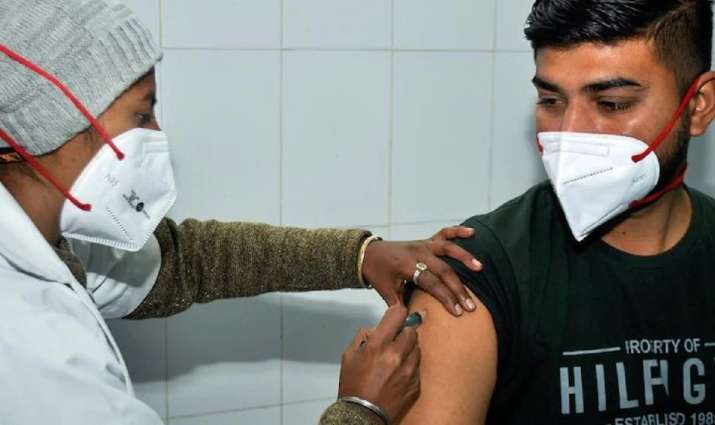
Flexible, agile immunization strategy critical to save lives in India: Lancet report
According to the latest Lancet report, flexible and agile vaccination strategies can play a vital role in saving lives in India as the COVID-19 pandemic continues to spread. The report ‘Responsive and Agile Vaccination Strategies Against COVID-19 in India’ published by Lancet Global Health on Friday highlighted the importance of sentinel site-based surveillance and early warning signal detection through test positivity ratio (TPR).
“Our analysis presents a demonstration of the principle that even limited vaccination resources can be marshaled to maximum effect, if deployed flexibly in response to rapidly evolving pandemics,” the report said.
It said the influenza pandemics in 1918 and 2009, as well as the experience of the current COVID-19 pandemic in other countries, highlight the potential for not only two, but subsequent waves of infection.
“Flexible, agile vaccination strategies can thus play an important role in protecting lives and livelihoods as the COVID-19 pandemic continues to spread,” it said.
The report states that innovative measures currently being pursued in India such as setting up of satellite vaccination centers close to habitations in rural areas and resident welfare associations in urban areas; Converting community halls and using large parking spaces for drive-in vaccinations, and mobile vaccination facilities to cover populations that are not within easy reach of vaccination centres.
“Such community-based outreach activities, along with transport facilities for older and less physically able individuals (from their homes to satellite vaccination sites), will reduce the distance between the main vaccination session sites and potential recipients.
“The active participation of community-based organizations in such planning and execution will be critical not only for successful implementation of vaccination but also to address vaccine hesitation,” it said.
It further said that since India has already given 199 million doses of the vaccine, and the record of adverse events following vaccination has “reassured a very low rate of side effects”, the discussion on the possibility of shortening the observation period after vaccination Its being done.
“Such measures will help accelerate vaccination while maintaining protection,” it said.
It also noted that there is a “mixed picture” on the single-dose efficacy of currently available vaccines against the major COVID-19 variant, B.1.617.2, in India.
“At present, there is a mixed picture on the single-dose efficacy of currently available vaccines against B.1.617.2, the dominant variant now prevalent in India. Early UK findings suggest that ChAdOx1 for nCoV-19 , single-dose efficacy against this variant is substantially reduced when symptomatic infection is considered as an endpoint.”
“However, recent findings suggest that protection against hospitalization is as high as 71 percent. Similarly, single-dose protection against hospitalization has been reported among healthcare workers in India,” the report said. has gone.
It also said that additional analysis shows that rapid response vaccination can still have a substantial impact on deaths, even if single-dose vaccine efficacy is reduced by as much as 30 percent.
The Lancet report suggested that one strategy may be to identify and vaccinate districts in advance that are most at risk of relapse—through serological surveys to identify areas with lower levels of previous exposure. for.
“However, it is not straightforward to predict risk in this way; for example, major cities such as Mumbai and New Delhi were among the cities with the highest seroprevalence in the first wave of India, and yet the first to see a resurgence in the ongoing second wave. were cities.
“Adjusting for population density and other factors will be important to systematically compare seroprevalence across different regions, but the collection of necessary evidence will take time. In the immediate term, more rapidly deployable strategies are urgently needed,” it added. .
(with PTI inputs)
.